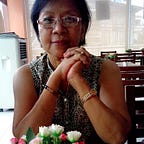Yes, the national hero said it!
Will young Filipinos, as a sure winner-maker, be propelled to select the leadership they and the nation deserve?
Come May 13, 2019, another Philippine general election will be held for 12 seats in the Senate, 243 seats in the House of Representatives, all elected positions in the Autonomous Region of Muslim Mindanao, all elected positions in 81 provinces, in 122 cities and in 1,489 municipalities.
Around 61 million Filipinos will vote, with the millennials and Generation Z (those born from the mid-1980s to early 2000 and those born in 2001, respectively) totaling around nineteen million (19 Million) or roughly thirty-one percent (31%).
As early as the 1800s, Jose Rizal rested the nation’s future in the hands of the young.
Let’s see how they fare in this millennium!
Still, Youth Aspire for Change
If we’re getting it right, young Filipinos are now showing signs they are out of the populist Duterte charisma that initially propelled them to make Duterte the 16th president of the republic and placed most of his allies to the Senate and House of Representatives.
Cajoled perhaps by the promise of “Change is Coming” and immediate action to solve the nation’s problems, the youth rendered forty percent (40%) of the total votes to Duterte in the 2016 election, notwithstanding Duterte’s use of expletives and foul mouthing in public. After three years as midterm of the Duterte administration, the judgment of the young remains a potent force in changing the game once more.
The April 2019 campus mock elections held in a number of universities (top and influential) reveal who the students prefer to lead the nation. Among the schools include the University of the Philippines (UP) Diliman, UP Baguio, UP Manila, UP Visayas, University of Santo Tomas, De La Salle Lipa, University of San Carlos Cebu, Wesleyan University, and Polytechnic University of the Philippines.
The top choices are mostly non-administration bets like
- Chel Diokno — civil rights advocate,
- Neri Colmenares — human rights lawyer,
- Samira Gutoc — environment and women’s rights advocate,
- Florin Hilbay — lawyer, one among those who represented and won in the international case of the Philippines vs. China, nullifying all historical claims of China in the West Philippine Sea, and
- Erin Tañada — human rights and labor rights advocate.
It looks like the youth are still looking for genuine change, after all!
Parents Plus Grandparents Are Equal Forces
Do Dad and Mom’s opinions matter in making election choices?
A bit more than the young voters, this age group most probably include the parents and grandparents of the millennials. In Generation X or those born in the 60s to the 80s are twenty (20) Million voters or 32% of the total voter population. Though statistics and analysis on parent and child voting pattern are still warranted, the close-knit nature of the Filipino family will likely play a big part in the parents-and-children vote. The influence of parents on their children (and vice-versa) on who to vote is likely to take effect.
Academic leaders and professionals, while saying “no” to No election in 2019 move, positioned that “there are more pressing and immediate policy changes that our leaders must address” as cited in the Manila Bulletin publication on July 24, 2018.
Thus, the millennial vote added to the Generation X vote will comprise sixty-three percent (63%) of the voting public. Their choices will create the new policy-making and executive leadership of the nation.
The Baby Boomer generation and those aged 65 and older may still Influence the young directly or indirectly through affinity and consanguinity.
Future Not Wasted on the Young
As a youthful nation, the liking for people who will play in making a bright future is as much as the dislike for those in government positions who deliver empty promises.
This trend of high anti-incumbency sentiment of the electorate indicates the need for more effective and efficient leadership in the country while not necessarily devaluing beneficial reforms that occur in the way the country is led.
Looking forward, Filipino youth may be directed to be more critical, more cautious and more expressive in the current political weather. Other than schools and families, mass media has the responsibility to righteously and truthfully address, inform, and educate the young. Natural disasters added to man-made ones, corruption in the bureaucracy, chronic poverty, and what other ills that ail the nation cannot leave a citizenry unscathed and unaffected. Change is constantly and inevitably coming — for better or worse.
The chance to effect positive change is in the hands of the young; may they find it cool to go for the better.
